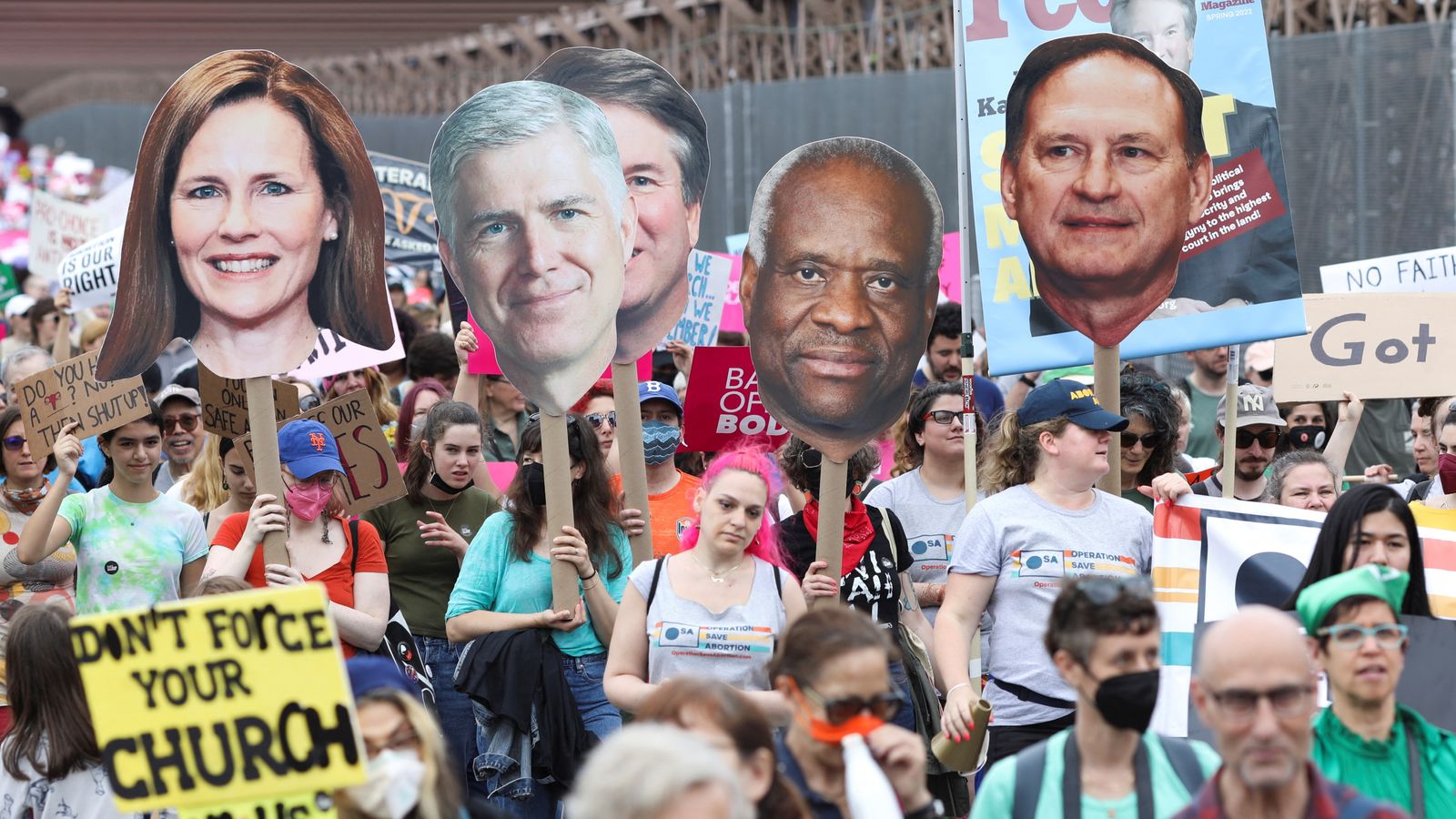It was on a Wednesday morning in June 2018 when America’s journey towards a ban on abortion seemingly became inevitable.
One seasoned legal scholar told television viewers that morning: “You’re going to see 20 states pass laws banning abortion outright.”
The trigger was the announcement by Supreme Court judge Anthony Kennedy, one of the more liberal minds on the court, that he planned to retire later in the summer.
It gifted Donald Trump, the president at the time, the opportunity to appoint Brett Kavanagh as a replacement, one of the three conservative justices Mr Trump was to seat on the court during his four years in office.
It revealed again the extraordinary and lasting power of the presidency, making lifetime appointments to a body with ultimate say over whole swathes of American life.
It also reminded Americans that elections have consequences. Because Mr Trump’s appointees completed the shift in the ideological balance on the highest court in the land and made possible the eventual overturning of Roe v Wade.
It is the culmination of decades of dogged pursuit by the anti-abortion movement, a long game played out relentlessly at local and national level.
Right to abortion overturned by US Supreme Court after nearly 50 years in Roe v Wade ruling
Roe v Wade: What happens now the Supreme Court has overruled the constitutional right to an abortion?
Roe v Wade overturned live: Millions of US women to lose abortion rights; around half of states could ban procedure
Americans had perhaps taken for the granted the delicate balance on the court until the Trump takeover.
For years there was a 5-4 majority for conservatives but with Chief Justice John Roberts, a conservative appointed by George W Bush, the swing vote often willing to side with liberals on things like Obamacare.
But when a Republican Senate refused to even vote on Barack Obama’s nominee Merrick Garland after the death of conservative Antonin Scalia in 2016, ostensibly because it was an election year, a sense emerged of the court as just another political branch of government.
31 anti-abortion bills this year
Conservative justices like Samuel Alito, who wrote the opinion on abortion that was leaked this year, Kavanagh and his fellow Trump appointees Neil Gorsuch and Amy Coney Barrett, all committed themselves to upholding Roe v Wade as the law of the land before taking their seat – only to shift once in place.
As that was happening, across the country states legislatures were introducing dozens of abortion bills – this year alone new laws were proposed in 31 states – with the belief that the Supreme Court would one day decide on those laws and, ultimately, render judgement on Roe v Wade.
That day has come.
Read more:
Activists prepare for bans with abortion pills
Two thirds of Americans will back pro-abortion candidates at mid-terms
Those who so often asked what America’s evangelicals saw in a thrice-married, often-bankrupt casino owner like Donald Trump now have their answer.
It was all about the judges he got to appoint and the Supreme Court he was able to shape.
His successor has publicly questioned whether it ends with abortion – whether this opens the door to restrictions on same-sex marriage and contraception, for example – and whether more of what Americans take for granted could be at risk.






















